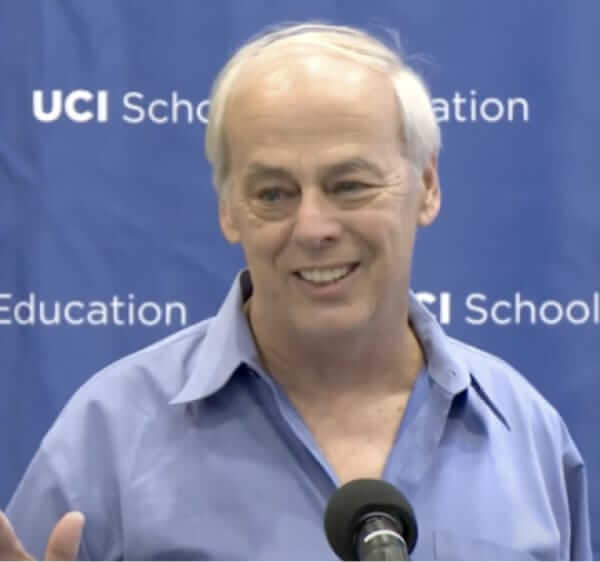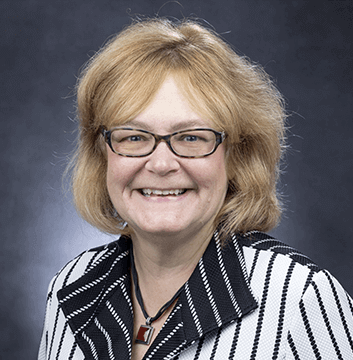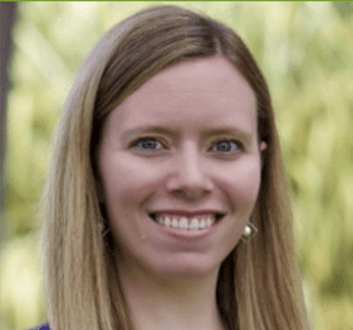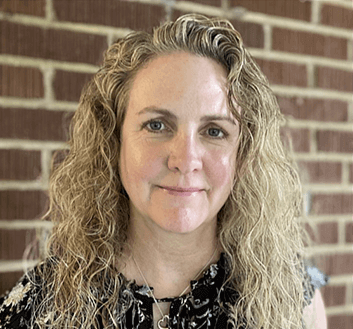Advisers and Partners
Our Partners page features a team of leading experts in education and research who contribute to the ongoing success of SRSD Online. Their collective work focuses on developing evidence-based strategies for teaching writing, reading, and self-regulation skills, ensuring that SRSD remains a powerful tool for educators. Their dedication to improving student outcomes is at the heart of everything we do, providing educators with the resources to inspire lasting success.

Dr. Karen R. Harris
SRSD Creator
Karen developed the Self-Regulated Strategy Development (SRSD) model for strategy instruction, which has been extensively researched, particularly in writing, and has applications in reading, math, and homework. Karen is the Mary Emily Warner Professor in the Mary Lou Fulton Teachers College at Arizona State University. With over 40 years of experience in education, she began her career as a general education teacher before transitioning to special education. She has consistently chosen to work in diverse, low-income schools, demonstrating her commitment to...
Karen developed the Self-Regulated Strategy Development (SRSD) model for strategy instruction, which has been extensively researched, particularly in writing, and has applications in reading, math, and homework. Karen is the Mary Emily Warner Professor in the Mary Lou Fulton Teachers College at Arizona State University. With over 40 years of experience in education, she began her career as a general education teacher before transitioning to special education. She has consistently chosen to work in diverse, low-income schools, demonstrating her commitment to improving education for all students.
Her research aims to enhance theory, research, and practice related to writing development for students with high-incidence disabilities, students who struggle with writing, and typically achieving students. She focuses on validating instructional approaches for heterogeneous classrooms by integrating multiple evidence-based theories. Karen’s work includes developing interventions to improve academic and self-regulation skills among at-risk students and those with disabilities. Additionally, she investigates effective models of in-service teacher preparation for writing instruction and sustainable professional development approaches that improve the quality of writing instruction.
Karen’s current research focuses on refining the SRSD model, developing new writing and reading strategies aligned with Common Core State Standards, and implementing practice-based professional development in SRSD for both general and special educators, emphasizing outcomes for teachers and students. She also explores the use of technology to enhance literacy instruction.
Karen, a former editor of the Journal of Educational Psychology, was also the senior editor of the American Psychological Association Educational Psychology Handbook (2012). She co-edits the What Works for Special Needs Learners series with Steve Graham, published by Guilford Press.
Karen has served as Co-Principal Investigator for over $10 million in funding. She is the co-author or co-editor of 14 books and over 200 peer-reviewed articles and chapters. She has been on editorial boards for special education, educational psychology, and general education journals. She is a Fellow of the American Psychological Association and the American Educational Research Association. She has held leadership positions, including President of Division 15 (Educational Psychology) of the American Psychological Association and President of the Division for Research of the Council for Exceptional Children. Additionally, she has served on committees and panels for organizations such as the National Institute of Child Health and Human Development, the International Reading Association, and the International Society for the Advancement of Writing Research.
Karen has received numerous awards, including the Career Research Award from the International Council for Exceptional Children, the Samuel A. Kirk Award from the Division of Learning Disabilities, and the Distinguished Researcher Award from the Special Education Interest Group of the American Educational Research Association.
AWARDS
Fellow American Educational Research Association (AERA)
President, Division 15 American Psychological Association (APA)
2015 Kauffman-Hallahan Distinguished Researcher Award
Council for Exceptional Children, Division for Research
This award recognizes individuals or research teams whose research has resulted in more effective services or education for exceptional individuals. Recipients are recognized for both the creation of a research base and the work done to translate this research into practice.
Selected Work
Journal article
Lane, K., Harris, K. R., Graham, S., Driscoll, S., Sandmel, K., Morphy, P., Hebert, M., & House,E. (2011). The effects of self-regulated strategy development for second-grade students with writing and behavioral difficulties: A randomized controlled trial. Journal of Research on Educational Effectiveness, 4, 322-353.
Journal article
Harris, K. R., Lane, K. L., Driscoll, S., Graham, S., Wilson, K., Sandmel, K., Brindle, M., & Schatschneider, C. (2012). Tier 1, teacher-implemented self-regulated strategy development for students with and without behavioral challenges. Elementary School Journal, 113, 160-191.
Journal article
Harris, K. R., Lane, K. L., Graham, S., Driscoll, S., Sandmel, K., Brindle, M., & Schatschneider, C. (2012). Practice-based professional development for self-regulated strategies development in writing: A randomized controlled study. Journal of Teacher Education, 63 (2), 103-119.
Book
Harris, K. R., Graham, S., & Urdan, T. (Eds.) (2012). APA educational psychology handbook (Volumes 1 – 3). Washington, D.C.: American Psychological Association.
Journal article
Harris, K. R., Graham, S., & Adkins, M. (2014). Practice-based professional development and Self-Regulated Strategy Development for Tier 2 at risk writers in second grade.

Dr. Steve Graham
SRSD Lead Researcher
Steve, the Warner Professor in the Division of Leadership and Innovation in Teachers College, has dedicated over 30 years to studying writing development, effective teaching methods, and the connections between writing, reading, and self-regulation. His research involves typically developing writers and students with special needs in elementary and secondary schools, often conducted in urban settings. Recently, Steve has focused on developing and testing digital tools to support writing and reading through grants from the Institute of Educational Sciences and the Office...
Steve, the Warner Professor in the Division of Leadership and Innovation in Teachers College, has dedicated over 30 years to studying writing development, effective teaching methods, and the connections between writing, reading, and self-regulation. His research involves typically developing writers and students with special needs in elementary and secondary schools, often conducted in urban settings. Recently, Steve has focused on developing and testing digital tools to support writing and reading through grants from the Institute of Educational Sciences and the Office of Special Education Programs in the U.S. Department of Education.
Steve’s extensive editorial experience includes roles as the former editor of journals such as Exceptional Children, Contemporary Educational Psychology, Journal of Writing Research, and Focus on Exceptional Children. He is the current editor of the Journal of Educational Psychology. He has co-authored several influential books, including the Handbook of Writing Research, Learning Disabilities, APA Handbook of Educational Psychology, Writing Better, Powerful Writing Strategies for All Students, and Making the Writing Process Work. Additionally, he authored three significant Carnegie Corporation reports: Writing Next, Writing to Read, and Informing Writing.
Steve has advised numerous organizations, including UNESCO, the National Institute of Health, the National Writing Project, and the What Works Clearinghouse. He chaired the What Works Clearinghouse guide on Teaching Elementary School Students to be Effective Writers and is currently chairing a similar guide for secondary-level writing instruction. He has contributed to various media outlets, providing background information for National Geographic, Time, Newsweek, La Monde, New York Times, Wall Street Journal, Washington Post, USA Today, National Public Radio, CBS Sunday Morning News, and NBC Today Show.
Steve has received numerous awards for his contributions to education and literacy, including the Career Research Award from the International Council for Exceptional Children (CEC), the Kauffman-Hallahan Distinguished Researcher Award from the Division of Research (CEC), the Samuel A. Kirk Award from the Division of Learning Disabilities (CEC), the Distinguished Researcher Award from the Special Education Special Interest Group of the American Educational Research Association, the J. Lee Weiderholt Lecture Award from the Council of Learning Disabilities, and the Don Johnston Literacy Lectureship Award. In 2015, he received the Outstanding Research with Sustained Impact Award from the Mary Lou Fulton Teachers College at ASU. The Distinguished Alumni Award from Valdosta State University holds special significance for him, as his mother was able to attend the ceremony in his hometown of Valdosta, Georgia.
Steve is a Fellow of the American Educational Research Association, the American Psychological Association’s Division 15 (Educational Psychology), and the International Academy for Research in Learning Disabilities. His current research continues to refine the SRSD model, develop new writing and reading strategies aligned with Common Core State Standards, and explore the use of technology to enhance literacy instruction.
Research Expertise
- Assessment
- At-Risk Students
- Cognitive Processes/Development
- Comprehension
- Effect Size
- Efficacy
- Evidence Based Education
- Instructional Practices
- Literacy
- Meta-Analysis
- Reading
- Special Education
- Teaching and Learning
- Writing
Awards
2015 Kauffman-Hallahan Distinguished Researcher Award
Council for Exceptional Children, Division for Research
This award recognizes individuals or research teams whose research has resulted in more effective services or education for exceptional individuals. Recipients of this award are recognized for both the creation of a research base and the work done to translate this research into practice.
Outstanding Research with Sustained Impact
Mary Lou Fulton Teachers College, ASU
Fellow, APA Division 15, Educational Psychology
American Psychological Association
Fellow, AERA
American Educational Research Association
Recognition for career contributions to educational research.
J. Lee Weiderholt Distinguished Lecturer Award
Council for Learning Disabilities
Teachers College professor Steve Graham received the J. Lee Weiderholt Distinguished Lecturer Award from the Council for Learning Disabilities for his research contributions in the study of learning disabilities. The award was presented at the Council’s 34th Annual Conference on Learning Disabilities, held in Austin, TX, October 10-11, 2012, where Steve was a featured keynote speaker.
Selected Work
Journal Articles
Harris, K. R., Graham, S., & Adkins, M. (2015). Practice-based professional development and Self-Regulated Strategy Development for Tier 2 at-risk writers in second grade. Contemporary Educational Psychology, 40, 5-16.
Festas, I, Oliveira, A., Rebelo, J, Damião, M., Harris, K.R., & Graham, S. (2015). The effects of self-regulated strategy development (SRSD) on the writing performance of eighth-grade Portuguese students. Contemporary Educational Psychology, 40, 17-27.
Graham, S., Kiuhara, S., Debra, D., & Harris, K.R. (2012). A meta-analysis of writing instruction for students in the elementary grades. Journal of Educational Psychology, 104, 879-896.
Graham, S., & Hebert, M. (2011). Writing-to-read: A meta-analysis of the impact of writing and writing instruction on reading. Harvard Educational Review, 81, 710-744.
Books
Graham, S., MacArthur, C., & Fitzgerald, J. (2013). Best practices in writing instruction (Second Edition). NY: Guilford.
Swanson, L., Harris, K. R., & Graham, S. (2013). Handbook of learning disabilities (Second Edition). NY: Guilford.
Harris, K. R., Graham, S., & Urdan, T. (2012). APA Educational Psychology Handbook (3 Volumes). Washington, D.C.: American Psychological Association.

Peter H. Reynolds
FableVision Founder, Author and SRSD Online Partner
Born in Toronto, Canada, Peter is not just an acclaimed writer, storyteller, and illustrator, but a global icon, celebrated for his best-selling books that are “stories for all ages” that not only celebrate but also nurture the creative spirit. His influence extends far beyond his birthplace, with his works, including the three books in his ‘Creatrilogy’—The Dot, Ish, and Sky Color—revered worldwide.
The Dot has received prestigious starred reviews from Publishers Weekly, Booklist, and...
Born in Toronto, Canada, Peter is not just an acclaimed writer, storyteller, and illustrator, but a global icon, celebrated for his best-selling books that are “stories for all ages” that not only celebrate but also nurture the creative spirit. His influence extends far beyond his birthplace, with his works, including the three books in his ‘Creatrilogy’—The Dot, Ish, and Sky Color—revered worldwide.
The Dot has received prestigious starred reviews from Publishers Weekly, Booklist, and School Library Journal and has been translated into over twenty languages, including Braille. It has won numerous awards, including the Irma S. and James H. Black Honor from Bank Street College of Education, the Oppenheim Platinum Toy Award, and the Christopher Medal. The film adaptation of The Dot (Scholastic/Weston Woods) won the American Library Association’s (ALA’s) Carnegie Medal of Excellence for the Best Children’s Video. In contrast, the film version of Ish was named one of ALA’s Notable Children’s Videos. International Dot Day celebrates creativity in classrooms globally each September, with over 19 million teachers, librarians, and students from 189 countries participating.
Peter, in collaboration with his twin brother Paul, has left an indelible mark on education. They founded the Reynolds Center for Teaching, Learning, and Creativity (RCTLC), a nonprofit organization that is a beacon of hope, dedicated to fostering creativity and innovation in education. The center’s mission is to empower all learners, equipping them with the vision, confidence, knowledge, and skills to shape their lives and make a positive impact on their communities and the world.
The Reynolds Center TLC focuses on enhancing educational experiences through innovative strategies and tools. It supports teachers and students by providing resources and professional development opportunities, emphasizing the power of creative learning. The center offers various programs, including workshops, webinars, and training sessions, designed to integrate technology and creativity into the classroom to foster student engagement and improve learning outcomes.
One of the key initiatives is digital storytelling, which combines traditional storytelling with multimedia elements, enabling students to express themselves uniquely and impactfully. Teachers can help students develop critical thinking, communication, and technical skills by incorporating digital tools. Additionally, the center provides various digital resources, including interactive lesson plans and project-based learning activities, to enhance the learning experience.
The Reynolds Center TLC is also significant in its focus on professional development, offering tailored training sessions to meet educators’ specific needs. This support ensures teachers are equipped with the knowledge and skills to implement creative and effective teaching strategies and keeps them current with educational trends and best practices.
In recognition of his substantial contributions to education and the arts, Peter received an honorary Doctorate of Humane Letters from Fitchburg State University in 2007. He was named a Verizon Literacy Champion for his efforts in promoting reading, writing, and self-expression. He received an Education Advocacy Award at the Massachusetts Statehouse for his work supporting arts education. In 2013, the Association of American Publishers (AAP) Learning Group honored him with a Visionary Award for his contributions to the learning resource industry. In 2017, Peter was awarded the Distinguished Eagle Award by the Boy Scouts of America for his distinguished service in his profession and community for at least twenty-five years after attaining the level of Eagle Scout.
Peter enjoys speaking engagements worldwide, both in person and virtually, where he champions “off the path” learning and everyday creativity and inspires children and adults to lead successful and meaningful lives.

Dr. Debra McKeown
SRSD Researcher
Debra recently joined the Department of Teaching, Learning, and Culture after more than five years at Georgia State University, where she was an Assistant Professor in the Department of Educational Psychology and Special Education. She earned her doctorate in Special Education from Vanderbilt University, training under Drs. Karen Harris and Steve Graham. Debra has ten years of classroom teaching experience in various settings, including charter, urban, and international schools. Her current research focuses on intervention strategies in writing, particularly in impoverished...
Debra recently joined the Department of Teaching, Learning, and Culture after more than five years at Georgia State University, where she was an Assistant Professor in the Department of Educational Psychology and Special Education. She earned her doctorate in Special Education from Vanderbilt University, training under Drs. Karen Harris and Steve Graham. Debra has ten years of classroom teaching experience in various settings, including charter, urban, and international schools. Her current research focuses on intervention strategies in writing, particularly in impoverished urban settings, working at both the teacher and student levels. She frequently presents her research at national and international conferences and publishes in top-tier journals. She is currently co-PI on a federal grant to demonstrate the efficacy of a writing intervention that combines teacher instruction and an intelligent tutor to improve writing outcomes for elementary-aged children.
Debra specializes in SRSD for writing, teacher professional development models, special education teacher quality, mixed methods, single-subject design, and qualitative methodology. She is an SRSD researcher, author, and assistant professor in the Department of Educational Psychology, Special Education, and Communication Disorders. Her research interests include teacher preparation and quality and effective instructional practices, especially in writing. Debra utilizes single-subject, quantitative, and qualitative methodologies, often employing mixed methods to address research questions. She is published in leading journals in her field and serves as Associate Editor for the Journal of Early Intervention. Currently, she runs two SRSD intervention research projects in school settings, a survey project, and a meta-analysis project. Before her academic career, Debra taught special education for ten years in the Southern US, Kenya, and Thailand.
Self-regulated strategy development (SRSD) is one of the most effective writing interventions for improving the quality of student writing. Research supports its effectiveness across multiple measures, including increased word count, sentence count, number of paragraphs, transitions, essay parts, and overall quality, while reducing score variability for students with emotional and behavioral disorders (EBD). Most research on SRSD for students with EBD has included the researcher as a teacher, likely due to the complexity of the SRSD approach, which makes it challenging for teachers to implement with fidelity by simply reading about the intervention. Instead, teachers indicate that intensive practice-based professional development (PBPD) is needed to implement SRSD effectively. Through PBPD, teachers learn and practice essential skills before working with students, refine their genre knowledge, become fluent with writing processes, and understand the theoretical underpinnings that make SRSD effective. PBPD also provides a setting for teachers to customize their writing instruction to meet the needs of students with EBD.
Specialties:
Learning Disabilities, Mild-Moderate/High Incidence Disabilities, Special Education teacher quality, Research Methodology, Writing interventions, Single-subject research design, Qualitative research, mixed methodology, Compounding issues associated with gender, SES, ESL, culture
Selected Publications
SRSD in Practice: Creating a Professional Development Experience for Teachers to Meet the Writing Needs of Students with EBD
Selected Research
Illuminating growth and struggles using mixed methods: Practice-based professional development and coaching for differentiating SRSD instruction in writing. 2016
Effects of Asynchronous Audio Feedback on the Story Revision Practices of Students with Emotional/Behavioral Disorders. 2015
SRSD in Practice: Creating a Professional Development Experience for Teachers to Meet the Writing Needs of Students with EBD. 2014
The writing of students with learning disabilities, meta-analysis of self-regulated strategy development writing intervention studies, and future directions: Redux 2013
A Meta-Analysis of Writing Instruction for Students in the Elementary Grades. 2012

Dr. Michael Hebert
SRSD Researcher
Michael is an SRSD researcher focusing on reading and writing development, how writing instruction influences reading development, and identifying effective “writing to read” practices. As an assistant professor in the Department of Special Education and Communication Disorders at the University of Nebraska–Lincoln, he has dedicated his research to understanding the interplay between writing and reading development. His work primarily investigates how writing instruction can enhance reading skills and the best practices for “writing to read.” He teaches courses on reading and...
Michael is an SRSD researcher focusing on reading and writing development, how writing instruction influences reading development, and identifying effective “writing to read” practices. As an assistant professor in the Department of Special Education and Communication Disorders at the University of Nebraska–Lincoln, he has dedicated his research to understanding the interplay between writing and reading development. His work primarily investigates how writing instruction can enhance reading skills and the best practices for “writing to read.” He teaches courses on reading and writing disabilities and instructional methods for diverse learners. Dr. Hebert received his Ph.D. from Vanderbilt University and has over eight years of experience as a classroom teacher and reading specialist in Arizona, Massachusetts, and California public schools.
Michael’s research examined the impact of Self-Regulated Strategy Development (SRSD) on the writing, engagement, and behavior of 44 second-grade students with behavioral and writing difficulties. The study was conducted within a comprehensive, integrated, three-tiered prevention model and involved random assignment to experimental or control conditions. The experimental group received SRSD as a Tier 2 intervention, focusing on strategies for planning and composing opinion essays and stories. Students met with instructors multiple times per week for 30-minute sessions. Results showed significant improvements in writing quality and composition elements for the SRSD group compared to the control group. Additionally, these students demonstrated greater academic engagement in writing tasks, although transfer and behavioral effects were limited.
Michael’s academic journey includes serving as an associate professor at the School of Education and directing the UCI Writing Project. His research is published in top-tier journals, and he actively presents at national and international conferences. He has received federal funding to evaluate a writing intervention combining teacher instruction and intelligent tutoring systems. His professional affiliations and contributions include editing roles for several prestigious journals and advisory positions for organizations like UNESCO and the National Institute of Health.
Challenges and Support in Literacy
Michael emphasizes understanding the diverse challenges students face in literacy, including disabilities and economic, social, and language barriers. He advocates for research-informed instructional practices and professional development for teachers to help students overcome these challenges and develop robust literacy skills. His work aims to provide equitable access to reading and writing opportunities, ensuring all students succeed in literacy.
Selected Publications
Writing to Read: Evidence for How Writing Can Improve Reading
(A Report from the Carnegie Corporation of New York)
Informing Writing: The Benefits of Formative Assessment
(A Report from the Carnegie Corporation of New York)
Translating the Statistical Representation of the Effects of Education Interventions into More Readily Interpretable Forms
(A report from the Institute of Education Sciences, National Center for Special Education Research)
Selected Research
Text Structure Strategies for Improving Expository Reading Comprehension 2017
The Effects of Text Structure Instruction on Expository Reading Comprehension: A Meta-Analysis 2016
Assessing the Writing Achievement of Young Struggling Writers: Application of Generalizability Theory 2016
Third and fourth-grade teacher’s classroom practices in writing: A national survey 2015

Dr. Jessica Hagaman
SRSD Researcher
Jessica is a prominent researcher specializing in Self-Regulated Strategy Development (SRSD) for reading and creating evidence-based strategies. She is an assistant professor at the University of Nebraska at Omaha, teaching SRSD to pre-service educators. Her journey in education began in general and special education classrooms at the elementary level and led her to earn a Ph.D. in Behavior Disorders from the University of Nebraska-Lincoln. Jessica’s expertise lies in reading comprehension, academic interventions for at-risk students with disabilities, and cognitive strategy instruction.
...Jessica is a prominent researcher specializing in Self-Regulated Strategy Development (SRSD) for reading and creating evidence-based strategies. She is an assistant professor at the University of Nebraska at Omaha, teaching SRSD to pre-service educators. Her journey in education began in general and special education classrooms at the elementary level and led her to earn a Ph.D. in Behavior Disorders from the University of Nebraska-Lincoln. Jessica’s expertise lies in reading comprehension, academic interventions for at-risk students with disabilities, and cognitive strategy instruction.
Jessica’s interest in strategy instruction began during her master’s program at the University of Nebraska-Lincoln under the mentorship of Dr. Bob Reid. She developed and published her first research study on reading strategy instruction during this time, which began her focus on SRSD. Encouraged by Dr. Reid, she pursued a Ph.D., during which she further explored SRSD and strategy instruction. Since then, she has conducted numerous research studies in classrooms, taught SRSD methods to her students, and co-authored several textbooks on strategy instruction and SRSD with Dr. Reid.
Currently, Jessica’s research focuses on intervention studies in writing, particularly in impoverished urban settings, working at both the teacher and student levels. She presents her findings at national and international conferences and publishes in top-tier journals. Additionally, she is co-PI on a federal grant to improve writing outcomes for elementary-aged children through teacher instruction and intelligent tutoring systems. Jessica’s work continues to impact the field of education, particularly in enhancing literacy instruction for students with diverse needs.
Selected Publications
Building Comprehension in Adolescents: Powerful Strategies for Improving Reading and Writing in Content Areas May 14, 2012, with Linda Mason Ph.D. and Robert Reid Ph.D.
Strategy Instruction for Students with Learning Disabilities, Second Edition (What Works for Special-Needs Learners) Sep 16, 2013, with Robert Reid Ph.D. and Torri Ortiz Lienemann Ph.D.
Selected Research
Teacher Attrition in Special Education: Perspectives From the Field 2017
Paraphrasing Strategy Instruction in Content Area Text 2016
Understanding and supporting the academic needs of students with ADHD 2016
Students’ Perceptions of an Online Graduate Program in Special Education for Emotional and Behavioral Disorders 2016
Paraphrasing Strategy Instruction for Struggling Readers 2015
Using self-regulated strategy development for written expression with students with Attention-Deficit/Hyperactivity Disorder 2014

Dr. Robert Reid
SRSD Researcher
Robert has over 25 years of experience researching and writing about Self-Regulated Strategy Development (SRSD). He studied strategy instruction under Karen Harris and Steve Graham and created the SRSD teaching text. Reid has primarily worked with learning-disabled students and struggling learners. Additionally, he is a Visiting Scholar at the University of Canberra’s Centre for Research and Action in Public Health in Australia and a Full Professor in the Department of Special Education and Communication Disorders at the University of Nebraska at...
Robert has over 25 years of experience researching and writing about Self-Regulated Strategy Development (SRSD). He studied strategy instruction under Karen Harris and Steve Graham and created the SRSD teaching text. Reid has primarily worked with learning-disabled students and struggling learners. Additionally, he is a Visiting Scholar at the University of Canberra’s Centre for Research and Action in Public Health in Australia and a Full Professor in the Department of Special Education and Communication Disorders at the University of Nebraska at Lincoln. Reid authored “Strategy Instruction for Students with Learning Disabilities, Second Edition,” which serves as a practical guide for K-12 educators, providing step-by-step instructions on cognitive strategy instruction to enhance self-regulated learning and writing, reading, and math performance.
Robert Reid’s SRSD Story
My name is Robert Reid, and I am an emeritus professor at the University of Nebraska-Lincoln. I joined the university about 24 years ago, tasked with developing a learning course and strategies for students with learning disabilities. At that time, Self-Regulated Strategy Development (SRSD) was the only validated strategy. Having been trained in the SRSD model by Karen Harris and Steve Graham, I created a semester-long course using SRSD.
Initially, I searched for a suitable textbook but found none that met the course’s needs. Consequently, I developed my own text based on my course materials and the knowledge I had gained about SRSD. My focus was not on the strategies themselves but on how to teach these strategies effectively, as this is a critical aspect of SRSD.
The most eye-opening aspect of SRSD is its effectiveness when implemented correctly. Most of my work has been with children with ADHD. During baseline testing, one student could only write, “Bob is mice. Eat.” After completing SRSD instruction, this student could write two-page stories with all the essential elements. Such remarkable turnarounds are common with SRSD, where significant gains are made even by those who start at very low levels. In my experience, I have never had a child fail to improve using SRSD.
Selected Publications
Parent and Teacher Ratings of Attention-Deficit/Hyperactivity Disorder
Symptoms: Factor Structure and Normative Data
Paraphrasing Strategy Instruction for Struggling Readers
Paraeducator-Led Strategy Instruction for Struggling Writers
Self-regulation among children with LD and ADH
Self-Regulated Strategy Development for Students with Learning Disabilities
Self-Regulated Strategy Development for Written Expression with Students with Attention Deficit/Hyperactivity Disorder
Use of a self-regulated strategy intervention to improve word problem-solving skills of students with mild disabilities. Journal of Behavioral Education, 6, 153-172
Selected Research
Writing Characteristics of Students with Attention Deficit Hyperactive Disorder: A Meta-Analysis: LEARNING DISABILITIES RESEARCH 2016
Multi-Informant Assessment of ADHD Symptom-Related Impairments Among Children and Adolescents 2015
Parent and Teacher Ratings of Attention-Deficit/Hyperactivity Disorder Symptoms: Factor Structure and Normative Data 2015
Paraphrasing Strategy Instruction for Struggling Readers 2015
Self-Regulation Strategies for Students with Autism Spectrum Disorder 2013
Self-regulation among children with LD and ADH 2012
Overcoming Executive Function Deficits With Students With ADHD 2011

Barbara Friedlander
SRSD Author and Researcher
Barbara, a Coordinator of Inclusion Practices at Frederick County Public Schools in Maryland, is a Nationally board-certified Special Education teacher with extensive experience. She co-authored two SRSD books: *Powerful Writing Strategies for All Students* and *Bring Powerful Writing Strategies into Your Classroom! Why and How*. Barbara has led action research projects on Self-Regulated Strategy Development (SRSD) and has presented on inclusion practices for various organizations, including the Association of Supervision and Curriculum Development, Making Schools Work, and the Council for Exceptional...
Barbara, a Coordinator of Inclusion Practices at Frederick County Public Schools in Maryland, is a Nationally board-certified Special Education teacher with extensive experience. She co-authored two SRSD books: *Powerful Writing Strategies for All Students* and *Bring Powerful Writing Strategies into Your Classroom! Why and How*. Barbara has led action research projects on Self-Regulated Strategy Development (SRSD) and has presented on inclusion practices for various organizations, including the Association of Supervision and Curriculum Development, Making Schools Work, and the Council for Exceptional Children. She is also the 2024 Learning Disabilities Association Sam Kirk Educator of the Year.
Barbara chaired EMT, IEP, and 504 meetings throughout her teaching career to ensure appropriate instructional practices, accommodations, pre-referral interventions, strategies, and student support. She also mentored teachers through the National Board-Certified Teacher process. As our lead SRSD training specialist, Barbara helps educators implement SRSD with fidelity, enabling them to teach their students effectively.
With over 20 years of experience teaching elementary special education and fifteen years in central office positions, Barbara is enhancing co-teaching practices across 69 K-12 public schools in Frederick County. She serves as President of the University of Maryland College of Education Alumni Network, is on the Maryland Chapter of the Council of Exceptional Children, and is a member of the Executive Board of the Maryland Learning Forward Professional Development Chapter.
Selected Publications
Powerful Writing Strategies for all Students, 2008, Brookes Publishing
Selected Research
Bring Powerful Writing Strategies Into Your Classroom! Why and How 2013
Self-Monitoring of Attention Versus Self-Monitoring of Academic Performance: Effects Among Students with ADHD in the General Education Classroom 2005
Certifications
Johns Hopkins University, Special Education Infants and Toddlers
McDaniel College, Administrative and Supervision
McDaniel College, Equity and Excellence in Education
National Teacher Board Certification Renewal- Special Education
Honors
Learning Disabilities Association Sam Kirk Educator of the Year
Shaklee Outstanding Special Educator and Grant
Council for Exceptional Children, Allyn Bacon Exemplary Program Award
Outstanding Cooperating Teacher, Baltimore Student-Teacher Committee
Maryland Association of Supervision and Curriculum Development Research Award

Dr. Laura Hauerwas
Scaling SRSD EIR Project Leader and Professor at Providence College
Laura is a distinguished professor of education at Providence College, known for her unwavering commitment to advancing education through research and innovation. With extensive experience in both teaching and research, Laura has dedicated her career to educating future teachers and improving educational outcomes for students. She earned her Ph.D. in Communication Sciences and Disorders, specializing in language development and language-based disabilities, which laid the foundation for her passion for developing evidence-based practices to enhance the educational experience for students. Her exceptional...
Laura is a distinguished professor of education at Providence College, known for her unwavering commitment to advancing education through research and innovation. With extensive experience in both teaching and research, Laura has dedicated her career to educating future teachers and improving educational outcomes for students. She earned her Ph.D. in Communication Sciences and Disorders, specializing in language development and language-based disabilities, which laid the foundation for her passion for developing evidence-based practices to enhance the educational experience for students. Her exceptional academic background and dedication to her field have earned her recognition as a leading expert in education, particularly in preparing culturally and linguistically responsive and globally conscious educators.
Under the visionary leadership of Laura, the Scaling Self-Regulated Strategy Development (SRSD) project secured an $11.3 million Education and Innovation Research (EIR) expansion grant from the U.S. Department of Education. This groundbreaking project focuses on implementing SRSD in teaching the writing process, emphasizing developing Social-Emotional Learning (SEL) capacities. From 2023 to 2027, SRSD Online, in collaboration with Laura, provides professional learning opportunities to cohorts of elementary schools across the United States. Her exceptional leadership in this project showcases her dedication to empowering educators and students through innovative, evidence-based approaches to teaching and bringing about effective systems change to support educators and students.
Laura is also involved in various educational initiatives, serving as a mentor to fellow educators. She co-leads several projects, including Scaling SRSD, Glocal RI, and RESPOND, which focus on enhancing educational practices and teacher development. Her pioneering work in systems change, particularly the implementation of RTI/MTSS in Rhode Island, continues to influence state policies that impact the education of students with learning disabilities. Laura has significantly contributed to advancing effective writing instruction practices through her collaborative efforts with renowned researchers like Steve Graham and Karen Harris. Her work dramatically impacts the field, fostering sustainable educational change for teachers and students nationwide.
Selected Publications:
Brown-Chidsey, R.; Scott, A.; Hauerwas, L. & Nails, A. (2024). Understanding dyslexia guidance for parents and teachers: A review of states’ handbooks. Learning Disabilities Research & Practice.
Copelas, K., Skaug, E., & Hauerwas, L. B. (2023). Critical narratives on intercultural communication in global literacies education. In H. Spires & S. Kerkhoff (Eds.). Critical Perspectives on Global Literacies: Bridging Research and Practice, (pp. 143-159). Routledge.
Hauerwas, L., Capperucci, D., & Salvadori, I. (2023). Modeling global teaching pedagogies in virtual exchange. In C. Ullom & N. Guler (Eds.), At school in the world: Developing globally engaged teachers. (pp. 238-254). Rowman & Littlefield.
Hauerwas, L., Gomez-Barreto, I.M., Boix Mansilla, V., & Segura Fernández, R. (2023) Transformative innovation in teacher education: Research toward a critical global didactica. Teaching and Teacher Education, 123, https://authors.elsevier.com/a/1gIg-,Gtqvy08b
Hauerwas, L. Kerkhoff, S. Schneider, S. (2021) Glocality, Reflexivity, Interculturality, and Worldmaking: A Framework for Critical Global Teaching. Journal of Research in Childhood Education.(35), 185-199.
Hauerwas, L. Creamer, M. (2018) Engaging with Host Schools to Establish the Reciprocity of an International Teacher Education Partnership. Journal of Higher Education Outreach and Engagement.(22), 157-188.
Zipke, M. Hauerwas, L. (2018) Factors that contribute to educational linguistics knowledge in our teacher education program. Teacher Education and Practice.
Hauerwas, L. Skawinski, S. Ryan, L. (2017) The longitudinal impact of teaching abroad: an analysis of intercultural development.. Teaching and Teacher Education.(67), 202-213.
Scott, A. Hauerwas, L. Brown, R. (2014) State Policy and Guidance for Identifying Learning Disabilities in Culturally and Linguistically Diverse Students. Learning Disabilities Quarterly.(37), 172-185.
Hauerwas, L. Brown, R. Scott, A. (2013) SLD and RTI: An Analysis of the Guidance Provided to Multidisciplinary Teams by State Department of Education Regulations and Guidance Documents. Exceptional Children.(80), 101-120.
Walker, J. & Boynton Hauerwas, L. (2006) Development of phonological, morphological, and orthographic knowledge in young spellers: The case of inflected verbs. Reading and Writing: An Interdisciplinary Journal, 19, 819-843.
Boynton Hauerwas, L. & Walker, J. (2003). Spelling of inflected verb morphology in children with spelling deficits. Learning Disabilities Research and Practice, 18(1), 25-35.
Selected Presentations
Hauerwas, L. B. with Adams, E (April, 2024). Annual Meeting of National Council on Measurement in Education. Questioning the copying of text: Validity of lower elementary source-based writing rubric. Philadelphia, PA. April 2024
Hauerwas, L.B. with Brown-Chidsey, R. & Brown, A. Council of Exceptional Children, San Antonio, TX. Translating Dyslexia Research into Practice through Dyslexia Handbooks. Council of Exceptional Children, San Antonio, TX. March, 2024
Hauerwas, L.B., with Gomez-Barreto, I. M., & Boix Mansilla, V. American Education Research Association, Chicago, IL. Critical global didactica: A study of student and faculty voices in teacher education. April, 2023
Hauerwas, L. Hos, R. Crawford, E. Comparative and International Education Society. Comparative and International Education Society, Washington DC – “Co-Constructing Spaces for Reimagining Learning in Glocal Partnerships for Teacher Development” February, 2023

Dr. Alyson Collins
"Turning the TIDE" IES SRSD Project Researcher
Alyson is an associate professor of special education at Texas State University, dedicated to improving writing outcomes for students with and at risk for disabilities through the “Turning the TIDE” project. This initiative focuses on providing professional development in text-based writing instruction. Her commitment to advancing writing instruction through Self-Regulated Strategy Development (SRSD) is evident through her collaborative efforts to enhance teacher training and practices in inclusive settings. Alyson has received numerous awards for her scholarly activities, highlighting her significant contributions...
Alyson is an associate professor of special education at Texas State University, dedicated to improving writing outcomes for students with and at risk for disabilities through the “Turning the TIDE” project. This initiative focuses on providing professional development in text-based writing instruction. Her commitment to advancing writing instruction through Self-Regulated Strategy Development (SRSD) is evident through her collaborative efforts to enhance teacher training and practices in inclusive settings. Alyson has received numerous awards for her scholarly activities, highlighting her significant contributions to SRSD research and education.
The inspiration for Alyson’s research emerged from her extensive experience as an elementary school teacher, where she provided reading and writing interventions to students with disabilities. Recognizing a significant gap in teachers’ preparedness to teach writing, she initiated the “Turning the TIDE” project to address this need. By offering intensive professional development and ongoing coaching, especially in light of pandemic-related learning loss, the project aims to improve student writing performance and teacher efficacy. Students receiving SRSD interventions are expected to perform more in text-based writing and reading comprehension than their peers receiving typical classroom instruction.
Alyson is particularly passionate about fostering communication and collaboration between general and special education teachers, having seen firsthand the benefits of such partnerships. Her project not only aims to provide necessary resources and interventions for writing development but also explores the effectiveness of online professional development modules as an alternative to in-person training. Alyson’s future goals include developing scalable, cost-effective PD models supported by research evidence and conducting a comprehensive meta-analysis of writing interventions to identify the most effective strategies for diverse educational contexts. Her innovative research and teacher training approach continues to drive significant improvements in writing instruction for students with disabilities.
Selected Scholarly/Creative Work
Collins, A. A., Ciullo, S., & Sandbank, M. (2023). Using generalizability theory to explore sources of variance on an observation tool of writing instruction. In K. Liu, M. Hebert, & R. A. Alves (Eds.), The Hitchhiker’s Guide to Writing Research: A Festschrift for Steve Graham (Vol. 25, pp. 277–294). Cham: Springer International Publishing.
Tavsanli, O. F., Graham, S., Kaldirim, A., & Collins, A. A. (2023). The effect of sentence combining instruction with second-to fourth-grade children: A replication study in Turkey. Educational Psychology Review, 35(3), 1–25.
Graham, S., Ciullo, S., & Collins, A. A. (2023). Do special and general education teachers’ mindset theories about the malleability of writing and IQ predict their writing practices. Journal of Learning Disabilities
Graham, S., Collins, A. A., & Ciullo, S. P. (2023). Special and general education teacher beliefs about writing and writing instruction. Journal of Learning Disabilitie, 56(3), 163–179.
Mason, L. H., Ciullo, S., Collins, A. A., Brady, S., Elcock, L., & Owen, L. S. (2022). Exploring inclusive middle-school content teachers’ training, perceptions, and classroom practice for writing. Learning Disabilities: A Contemporary Journal, 20(2), 111–128.
Selected Awards
Award / Honor Recipient: College Achievement Award in Scholarly/Creative Activities, College of Education, Texas State University. 2023
Award / Honor Recipient: Presidential Distinction Award in Scholarly/Creative Activities, College of Education, Texas State University. 2022
Award / Honor Recipient: Presidential Distinction Award in Scholarly/Creative Activities, College of Education, Texas State University. 2020
Award / Honor Recipient: Favorite Professor, The Alfred H. Nolle Chapter of the Alpha Chi National College Honor Society.September 2017
Award / Honor Recipient: Melvyn I. Semmel Dissertation Research Award, Peabody College, Vanderbilt University, Nashville, TN. 2015

Dr. Amber Ray
SRSD Researcher
Amber, is an Assistant Professor in the Department of Special Education at the University of Illinois at Urbana-Champaign. Her research is dedicated to understanding and improving students’ writing skills with diverse learning needs. Amber has co-authored several key studies on the efficacy of Self-Regulated Strategy Development (SRSD), which have been widely published in leading educational journals. Her dedication to advancing literacy education has earned her numerous accolades, including the Outstanding Researcher Award from the International Literacy Association.
Amber’s research interests include...
Amber, is an Assistant Professor in the Department of Special Education at the University of Illinois at Urbana-Champaign. Her research is dedicated to understanding and improving students’ writing skills with diverse learning needs. Amber has co-authored several key studies on the efficacy of Self-Regulated Strategy Development (SRSD), which have been widely published in leading educational journals. Her dedication to advancing literacy education has earned her numerous accolades, including the Outstanding Researcher Award from the International Literacy Association.
Amber’s research interests include writing and reading interventions to help students with disabilities and diverse learning needs succeed. She focuses on strategy and self-regulation approaches to instruction and professional development methods for teachers and school leaders. Her work aims to develop evidence-based instruction that enhances learning for all students, including those with disabilities. Amber has researched various educational levels, from elementary through high school students to adults.
Amber earned her Ph.D. in Learning, Literacies, and Technologies with a specialization in Special Education from Arizona State University. Her research interests are centered on writing and reading interventions to help students with disabilities succeed in school. She is passionate about using the knowledge gained through research to help current educators and prepare future teachers to use effective instructional techniques when teaching struggling learners and students with disabilities. Her areas of interest include writing and reading interventions, students with high-incidence disabilities, and Self-Regulated Strategy Development.
Publications
Ray, A. B., & Mason, T. (2024). Teaching middle school students with learning disabilities argumentative writing using SRSD with technology supports. Journal of Research in Special Educational Needs. Advance online publication.
Ray, A. B., Torres, C., & Cao, Y. (2023). Improving Informative Writing in Inclusive and Linguistically-Diverse Elementary Classes through Self-Regulated Strategy Development. Exceptionality, 31(5), 319-343.
Ray, A. B., Poch, A. L., & Datchuk, S. M. (2023). Secondary Educators’ Writing Practices for Students with Disabilities: Examining Distance Learning and In-Person Instruction. Journal of Special Education Technology, 38(4), 472-487.
Graham, S., Hsiang, T. P., Ray, A. B., Zheng, G., & Hebert, M. (2022). PREDICTING EFFICACY TO TEACH WRITING: The Role of Attitudes, Perceptions of Students’ Progress, and Epistemological Beliefs. Elementary School Journal, 123(1), 1-36.
Graham, S., Harbaugh-Schattenkirk, A. G., Aitken, A., Harris, K. R., Ng, C., Ray, A., Wilson, J. M., & Wdowin, J. (2022). Writing motivation questionnaire: validation and application as a formative assessment. Assessment in Education: Principles, Policy and Practice, 29(2), 238-261.
Michael, E. L., Ray, A., & McKeown, D. (2022). Assessment for effective strategy instruction in writing. Preventing School Failure, 66(4), 327-332.
Ray, A. B., & Graham, S. (2021). A College Entrance Essay Exam Intervention for Students With High-Incidence Disabilities and Struggling Writers. Learning Disability Quarterly, 44(4), 275-287.
Graham, S., Hebert, M., Fishman, E., Ray, A. B., & Rouse, A. G. (2020). Do Children Classified With Specific Language Impairment Have a Learning Disability in Writing? A Meta-Analysis. Journal of Learning Disabilities, 53(4), 292-310.
Ray, A. B. (2020). What does the Research Say about Research/Evidence-based Intensive Intervention Programming for Writing? In M. Dunn (Ed.), Writing Instruction and Intervention for Struggling Writers : Multi-Tiered Systems of Support (pp. 42-60). Cambridge Scholars Publishing.
Graham, S., Wijekumar, K., Harris, K. R., Lei, P. W., Fishman, E., Ray, A. B., & Houston, J. (2019). Writing skills, knowledge, motivation, and strategic behavior predict students’ persuasive writing performance in the context of robust writing instruction. Elementary School Journal, 119(3), 487-510.
Harris, K. R., Ray, A., Graham, S., & Houston, J. (2019). Answering the challenge: SRSD instruction for close reading of text to write to persuade with 4th and 5th Grade students experiencing writing difficulties. Reading and Writing, 32(6), 1459-1482.
Ray, A. B., Graham, S., & Liu, X. (2019). Effects of SRSD college entrance essay exam instruction for high school students with disabilities or at-risk for writing difficulties. Reading and Writing, 32(6), 1507-1529.
Ray, A. B. (2019). Evidence-Based Learning Strategies: Preparing Students With High-Incidence Disabilities for College. Intervention in School and Clinic, 54(4), 204-211.
Wijekumar, K., Graham, S., Harris, K. R., Lei, P. W., Barkel, A., Aitken, A., Ray, A., & Houston, J. (2019). The roles of writing knowledge, motivation, strategic behaviors, and skills in predicting elementary students’ persuasive writing from source material. Reading and Writing, 32(6), 1431-1457.
Harris, K. R., Graham, S., Aitken, A. A., Barkel, A., Houston, J., & Ray, A. (2017). Teaching Spelling, Writing, and Reading for Writing: Powerful Evidence-Based Practices. Teaching Exceptional Children, 49(4), 262-272.
Ray, A. B., Graham, S., Houston, J. D., & Harris, K. R. (2016). Teachers use of writing to support students’ learning in middle school: A national survey in the United States. Reading and Writing, 29(5), 1039-1068.
Graham, S., Harris, K. R., & Chambers, A. B. (2015). Evidence-based practice and writing instruction. In C. A. MacArthur, S. Graham, & J. Fitzgerald (Eds.), Handbook of Writing Research (2 ed., pp. 211-226). (Handbook of writing research). Guilford Press.
Harris, K., Graham, S., Chambers, A., & Houston, J. (2014). Turning Broccoli Into Ice Cream Sundaes: Self-Regulated Strategy Development for Persuasive Writing Using Informational Text. In K. Ganske (Ed.), Write Now! Empowering Writers in Today’s K–6 Classroom (pp. 87-111). International Reading Association.

Dr. Pamela Bazis
SRSD Researcher
Pam is an Assistant Professor in the Department of Special Education and Communication Disorders at the University of Nebraska–Lincoln, joining in August 2023. She holds a Ph.D. in Educational Studies with a concentration in Special Education from the University of Nebraska-Lincoln, an M.Ed. in Special Education from Midwestern State University, and a B.S. in Elementary Education from the University of Nebraska-Lincoln. Her research is dedicated to understanding the interdependent nature of reading and writing cognitive processes and developing effective instructional practices...
Pam is an Assistant Professor in the Department of Special Education and Communication Disorders at the University of Nebraska–Lincoln, joining in August 2023. She holds a Ph.D. in Educational Studies with a concentration in Special Education from the University of Nebraska-Lincoln, an M.Ed. in Special Education from Midwestern State University, and a B.S. in Elementary Education from the University of Nebraska-Lincoln. Her research is dedicated to understanding the interdependent nature of reading and writing cognitive processes and developing effective instructional practices that enhance foundational literacy skills for elementary students.
Before joining the University of Nebraska–Lincoln, Pam was an Assistant Professor of Literacy Education at the University of Tennessee, Knoxville. There, she led projects on assessments for students with dysgraphia and language-based learning difficulties. She developed integrated interventions combining handwriting, word reading, and writing skills for students struggling with foundational literacy. Pam actively collaborates with the Tennessee Reading Research Center, creating valuable literacy resources for teachers, parents, and children.
Pam is also a co-investigator on the WORDS Project (Workshops on Reading Development Strategies), a professional development program to improve early literacy skills across Nebraska. This project is co-funded by the Institute of Education Sciences and the Nebraska Department of Education. With over 25 years of experience in public education, including roles as a classroom teacher, reading specialist, instructional coach, and district dyslexia coordinator, Pam is an ALTA Certified Academic Language Therapist and Qualified Instructor. Her extensive background and ongoing research efforts continue to make significant contributions to the field of literacy interventions and special education.

Dr. Bruce Saddler
SRSD and Sentence Combining Researcher
Bruce is an Associate Professor in the Division of Special Education at the University at Albany, State University of New York. A former K-12 special education teacher and Teacher of the Year, Bruce focuses his research on improving writing skills in students with learning disabilities through Self-Regulated Strategy Development (SRSD) and sentence combining. He has published over 40 articles and conducted over 80 presentations, workshops, and clinics across the United States and Canada, contributing significantly to writing instruction.
Bruce’s research includes...
Bruce is an Associate Professor in the Division of Special Education at the University at Albany, State University of New York. A former K-12 special education teacher and Teacher of the Year, Bruce focuses his research on improving writing skills in students with learning disabilities through Self-Regulated Strategy Development (SRSD) and sentence combining. He has published over 40 articles and conducted over 80 presentations, workshops, and clinics across the United States and Canada, contributing significantly to writing instruction.
Bruce’s research includes numerous studies and book chapters on effective writing strategies for students with learning disabilities. His influential works cover topics such as summarizing strategy and the impact of peer tutoring on writing performance. Bruce has spent over a decade investigating, teaching, and discussing sentence combining, a technique he finds particularly effective in enhancing students’ writing abilities.
In addition to his research, Bruce collaborates with renowned researchers like Steve Graham and Karen Harris. These collaborations have further advanced effective writing instruction practices, substantially impacting the special education field. Through his extensive research and dedication, Bruce continues to influence the development of effective instructional strategies for students with learning disabilities.
Selected Research
It Was a Dark and Stormy Sentence: Teaching the Fine Art of Sentence Construction October 2023
Using a Simultaneous Prompting Procedure to Improve the Quality of the Writing of Three Students with Learning Disabilities October 2021
Teaching Summary Writing to Students with Learning Disabilities via Strategy Instruction May 2019, Reading and Writing Quarterly
The effects of a peer-tutoring intervention on the text productivity and completeness of narratives written by eighth graders with learning disabilities January 2019
Preventing Writing Difficulties: The Effects of Planning Strategy Instruction on the Writing Performance of Struggling Writers October 2017
Effects of a Summarizing Strategy on Written Summaries of Children With Emotional and Behavioral Disorders September 2016
Response to Intervention in Writing: A Suggested Framework for Screening, Intervention, and Progress Monitoring January 2013
Planning Instruction and Self-Regulation Training: Effects on Writers With Autism Spectrum Disorders September 2010
Writing Better Sentences: Sentence-Combining Instruction in the Classroom January 2010





